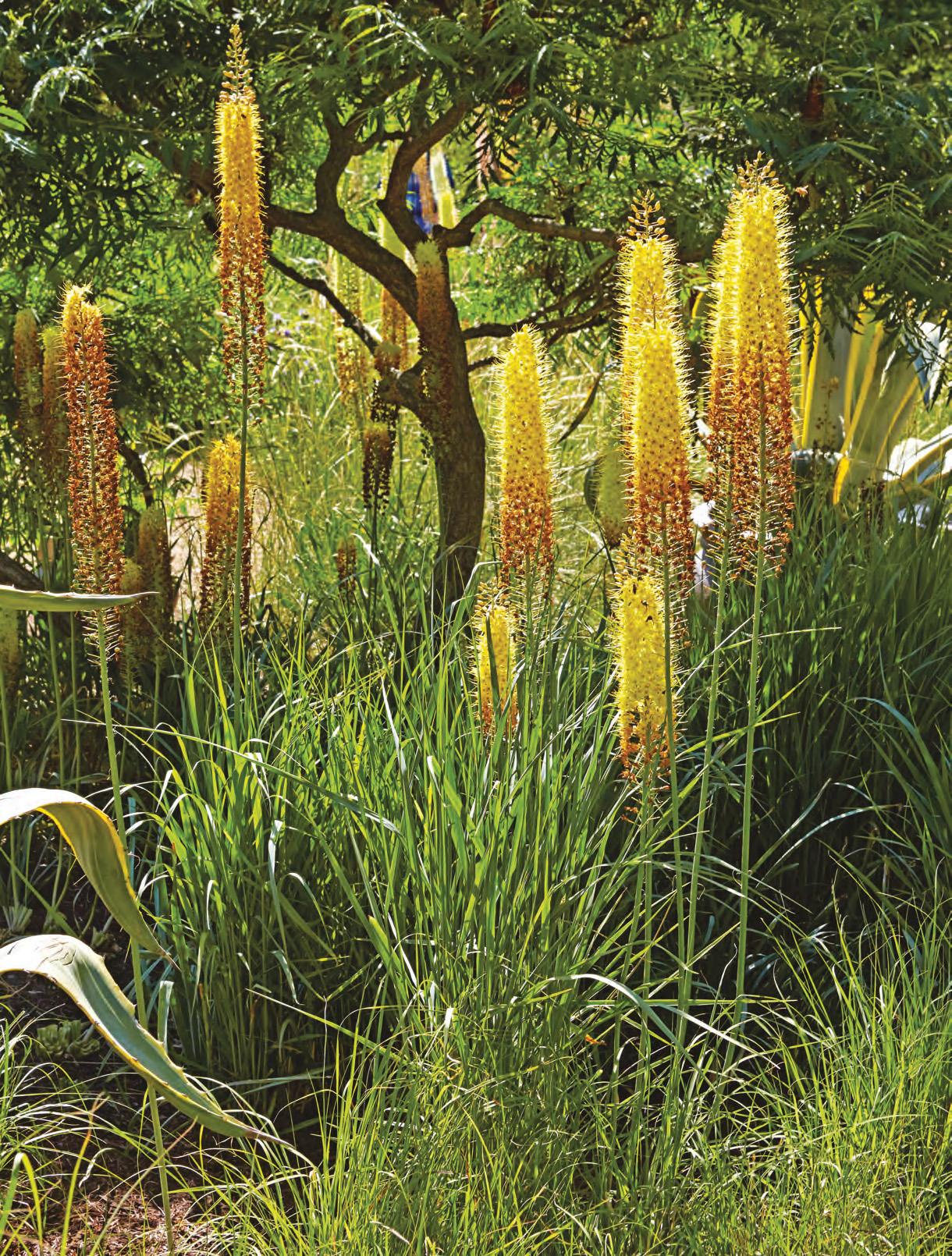
He's had to learn how to create a good-looking garden that thrives through heat and drought and has some advice that can help all of us.
PANAYOTI KELAIDIS
Director of Horticulture Outreach, Denver Botanic Gardens
RIGHT PLANT, RIGHT PLACE For starters, Panayoti suggests doing an inventory of your yard with an eye out for microclimates. Make sure you're growing drought-tolerant plants in the driest spots and not trying to baby something along that isn't happy there. You might find dry microclimates at the top of a slope or even in the shade of shallow-rooted trees. Most common are spots near driveways, house foundations or retaining walls, where heat from the sun is often reflected onto the garden. Panayoti likes to say that the north side of his house is like Alaska, and the south side is like Arizona. He grows ferns and woodland plants on the north side, while xeric plants make their home on the hot, dry Arizona side. If a plant is struggling, it's probably not in the right place.
HOW PLANTS TOLERATE DROUGHT Characteristics that help plants through dry times include large, thick or fleshy root systems and leaves that are slender, succulent, waxy or fuzzy.
Prairie plants, such as little bluestem, purple coneflower and cup plant, grow roots deep into the soil to seek out moisture. Fleshy bulbous roots or bulbs of all types, including the foxtail lily at right and the woody rhizomes of bearded iris, store water. Small-leaved herbs, such as lavender, rosemary and fennel, are able to withstand long periods without rain.
Meet a few of Panayoti's favorite drought-tolerant perennials on the next page some of them might surprise you!
Foxtail lily
Eremurus spp. and hybrids
この記事は Garden Gate の Issue 172 - August 2023 版に掲載されています。
7 日間の Magzter GOLD 無料トライアルを開始して、何千もの厳選されたプレミアム ストーリー、9,000 以上の雑誌や新聞にアクセスしてください。
すでに購読者です ? サインイン
この記事は Garden Gate の Issue 172 - August 2023 版に掲載されています。
7 日間の Magzter GOLD 無料トライアルを開始して、何千もの厳選されたプレミアム ストーリー、9,000 以上の雑誌や新聞にアクセスしてください。
すでに購読者です? サインイン
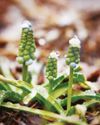
Backyard Tornado
\"HE WHO SEARCHES FOR SPRING WITH HIS KNEES IN THE MUD FINDS IT, IN ABUNDANCE.\" - ALDO LEOPOLD
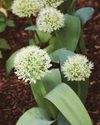
Front-of-the-Border "Wow!" Power
When it comes to easy-care plants that bring a lot of punch to the border, 'Ivory Queen' Turkestan onion should be near the top of your shopping list.
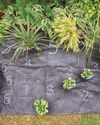
GARDEN ESSENTIALS
MAKE GARDENING EASIER THIS YEAR

Elevate an Evergreen Hedge
Although an evergreen hedge looks suitable all year on its own, it's perfectly poised to become something even greater: a backdrop to a garden where flower after flower will unfurl with such drama, you just might find yourself stepping outside and offering your applause.

One Garden, Two Worlds
In this colorful and welcoming garden, sunny, flower-filled front borders transition to a shady backyard hideaway.
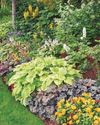
on edge
Four garden pros share their go-to edging techniques.

DIANTHUS
Add fragrance, vivid color and timeless charm with this reliable, cold-hardy perennial.
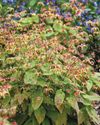
2025's Best New Plants!
Are you ready to start planning for next year's garden? A few new plants might be just what you need to bring those dreams to reality.
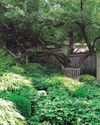
Solve Garden Problems With Ground Covers
Are you tired of coaxing turfgrass to grow in difficult spots? In her book Groundcover Revolution, Kathy Jentz says that ground covers can be the solution to these struggles.

The Romance of Spring
With the arrival of spring, emerging perennials fill the garden with soft texture, restoring life to the harsh, often barren landscape of winter.